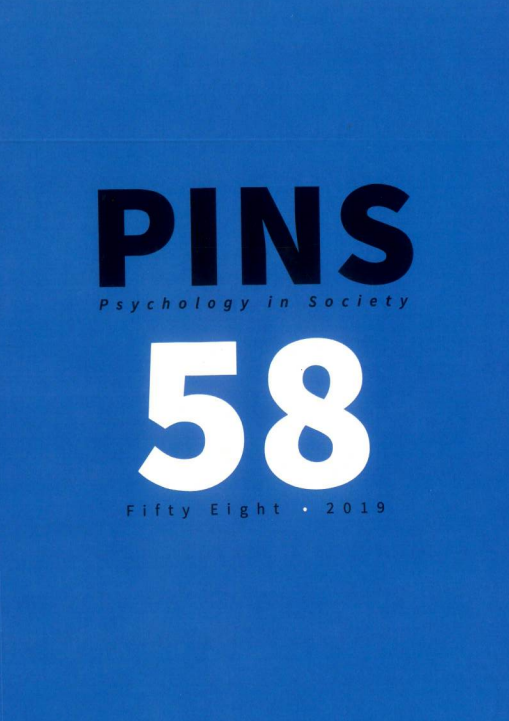Decolonial Feminist Community Psychology: Centering the Margins
DOI:
https://doi.org/10.57157/pins2019Vol58iss1a6055Abstract
[BOOK REVIEW]
Boonzaier, Floretta & van Niekerk, Taryn (eds.) (2019)
Decolonial feminist community psychology, 1st edition.
Switzerland: Springer.
ISBN-10: 3030200000
ISBN-13: 978-3030200008
Pages 160
Decolonial feminist community psychology is a recent and emerging form of psychology. As a sub-discipline in the field, community psychology – the applied study of the relationship between social systems and individual well-being in the context of community (Hanlin et al., 2008, p. 524) – dates back only around 50 years.
Decolonial Feminist Community Psychology, edited by Floretta Boonzaier and Taryn van Niekerk, takes these efforts one step further by advancing a concerted investigation of the relationship between decolonial and feminist approaches within community psychology. This volume critically engages with and develops feminist and anticolonial voices from the global south as protest against hegemonic and Northern knowledge. The contributors to the book were encouraged to assist the editors in envisioning an emerging decolonial and feminist community psychology. The editors remark that ‘such a form of psychology already exists.’ This statement – that this work is already here and remains ongoing – is amply illustrated throughout the volume.
Downloads
Downloads
Published
How to Cite
Issue
Section
License
This journal is an open access journal, and the authors' and journal should be properly acknowledged, when works are cited.
Authors may use the publishers version for teaching purposes, in books, theses, dissertations, conferences and conference papers.
A copy of the authors’ publishers version may also be hosted on the following websites:
- Non-commercial personal homepage or blog.
- Institutional webpage.
- Authors Institutional Repository.
The following notice should accompany such a posting on the website: “This is an electronic version of an article published in PINS, Volume XXX, number XXX, pages XXX–XXX”, DOI. Authors should also supply a hyperlink to the original paper or indicate where the original paper (http://www.journals.ac.za/index.php/pins) may be found.
Authors publishers version, affiliated with the Stellenbosch University will be automatically deposited in the University’s’ Institutional Repository SUNScholar.
Articles as a whole, may not be re-published with another journal.
The copyright of the article(s) lies with the author(s).
The copyright of the journal lies with PINS-psychology in Society.
The following license applies:
Attribution CC BY-NC-ND 4.0 - https://creativecommons.org/licenses/by-nc-nd/4.0/

